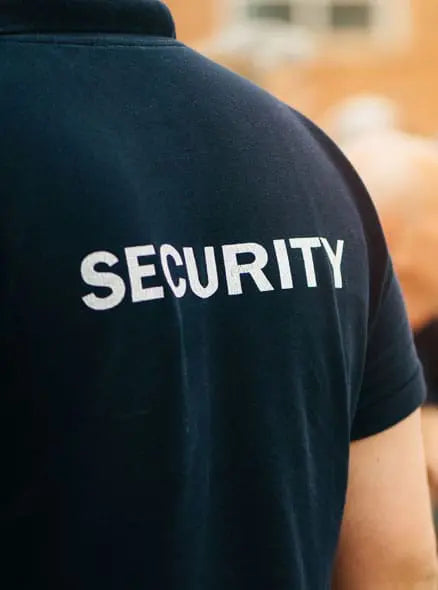If you’ve ever spent a Friday night in Temple Bar, queued up for a big GAA match, or wandered through a bustling shopping centre in Cork, you’ll know just how lively Ireland can be. Our culture is built on connection — chatting in pubs, gathering at festivals, or celebrating in local clubs. But with all that energy comes responsibility: making sure people feel safe while enjoying themselves.
That’s where professional security officers come in. Their role isn’t just about standing at a door or patrolling a site — it’s about keeping the Irish way of life safe, respectful, and welcoming.
Community First: The Irish Way
One thing that stands out in Ireland is our sense of community. People look out for one another, and security officers, when well trained, become part of that tradition. Whether it’s helping someone find their way after a concert or calmly resolving a dispute in a nightclub, good security work reflects values we hold dear: fairness, respect, and responsibility.
The Legal Bit: Why Training Is Non-Negotiable
Unlike some countries where you can walk into a security job with little preparation, Ireland has clear standards. The Private Security Authority (PSA) requires that every officer be fully certified before starting work. This means completing QQI-Accredited Training, covering essentials like conflict management, the law, and safety procedures.
It’s not about ticking a box — it’s about making sure that anyone wearing a security badge knows exactly how to handle situations safely and legally.
Keeping Nightlife and Hospitality Safe
Ask anyone who’s visited Ireland — our nightlife is famous. From late-night gigs in Galway to student nights in Limerick, venues rely on trained staff to keep things fun and safe. Without proper training, it’s too easy for situations to spiral. A calm, confident, and licensed security officer can de-escalate trouble long before it gets out of hand.
And it’s not just nightclubs. Hotels, shopping centres, and even small community festivals rely on security staff to create safe spaces where people can enjoy themselves without worry.
New Challenges, New Skills
Of course, Ireland faces the same modern challenges as everywhere else: shoplifting, anti-social behaviour, and even fraud targeting businesses. Security officers today need more than a strong presence — they need skills. Training equips them with the tools to spot problems early, use communication instead of force, and make decisions that keep everyone safe.
A Career Path, Not Just a Job
For many people, security work is more than temporary employment. It can be the start of a solid career. Some go on to supervisory roles, private investigations, or even law enforcement. What begins as a two-week training course can open doors to a lifelong profession.
Why Public Confidence Matters
In Ireland, trust is everything. People want to know that the person managing security at an event or workplace is not just “on the job” but genuinely capable and professional. A trained officer reassures the public and earns respect — both of which are essential for the reputation of the entire industry.
Ireland is changing — our cities are busier, our events bigger, and our businesses more connected. But one thing hasn’t changed: people want to feel safe wherever they are. Professional Security Training makes sure that those keeping watch are not only licensed but also prepared to handle the realities of the job with confidence, respect, and professionalism.
At the end of the day, good security isn’t about power or control — it’s about helping communities thrive. And in ICSE, that’s something worth protecting.

